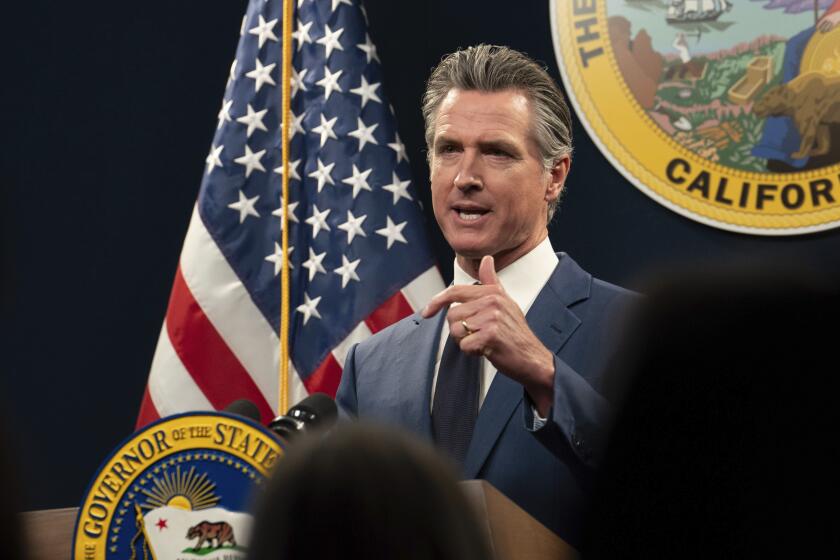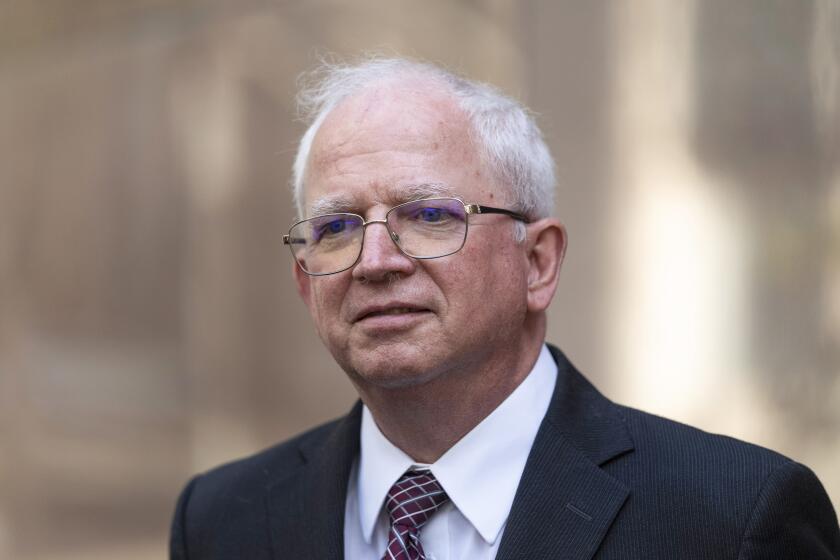House Defeats Surprise Contra Aid Move
House Democrats on Thursday beat back a surprise move by Republicans that would have permitted President Reagan to resume CIA support for the resistance forces in Nicaragua.
Although defeated, supporters of the Nicaraguan Contras said that the surprisingly close vote of 214 to 190 indicates that members of the Democratic-controlled House are frustrated by the slow pace of peace talks in Nicaragua.
At the same time, a bipartisan group of House and Senate members announced plans to revive efforts to provide direct military assistance to the Contras if Nicaragua’s Sandinista government fails to meet its obligations under the peace treaty by the time the current truce ends May 31.
Opponents of Contra aid were stunned and angered when Rep. Henry J. Hyde (R-Ill.) introduced a proposal that would have lifted a five-year-old ban on spending CIA contingency funds to assist the Contras, beginning next Oct. 1. Hyde’s proposal was offered as an amendment to a bill authorizing CIA spending for fiscal 1989.
It was the first time in about six years that the House has voted on the Contra aid issue without a strenuous advance lobbying effort on both sides. In the recent past, the House Democratic leadership frequently has used all the prerogatives of the majority party to prohibit Republicans from getting a simple up-or-down vote on renewing Contra aid.
Rep. David R. Obey (D-Wis.), speaking for Contra opponents, complained bitterly that Hyde had taken advantage of a parliamentary situation that permitted amendments to be offered on the CIA funding bill. Normally, when the House is considering legislation that could prove to be controversial, amendments are strictly limited by the Democratic leadership.
“Good public policy is not served by surprise amendments,” he said.
An Ardent Supporter
But Hyde, an ardent Contra supporter who frequently has protested what he views as high-handed parliamentary tactics by the Democrats whenever the issue comes up, offered no apologies for his move. “We have to do what we have to do,” he said.
Hyde argued that the ban on the expenditure of CIA contingency funds in Nicaragua is unfair because Congress has imposed no similar restriction in any other part of the world. Until 1983, the CIA freely used it contingency funds in support of the Contras.
In addition, proponents of the proposal argued that it would provide an incentive to the Sandinistas to negotiate a peace agreement before the money would become available to the Contras after Oct. 1. So far, they argued, the Sandinistas have not demonstrated a good-faith effort to comply with the truce agreement.
But Democrats said that, instead, it would cause the current peace talks to break down.
“It would be the worst possible thing we could do at the worst possible time,” Obey said. “We should not set up the United States as an easy target for the Sandinistas to blame if they walk away from these negotiations. If those negotiations break down, let it be Nicaragua that does it.”
Rep. David E. Bonior (D-Mich.) noted that negotiations between the Contras and the Sandinistas are now at a delicate stage. “I could not think of a more pernicious, ill-timed amendment,” he said.
House Intelligence Committee Chairman Louis Stokes (D-Ohio), whose job is to oversee the activities of the CIA, noted that contingency funds were never intended to be used to assist insurgencies such as the Contras’.
“These funds were meant for unforeseen emergencies, not to conduct wars,” he said.
The House cut off military assistance to the Nicaraguan resistance earlier this year in the wake of disclosures during the Iran-Contra hearings that the Administration had defied a congressional ban on Contra aid. The rebels are now permitted to receive only food, clothing and medicine under a $17.7-million aid program approved by Congress.
More to Read
Get the L.A. Times Politics newsletter
Deeply reported insights into legislation, politics and policy from Sacramento, Washington and beyond. In your inbox three times per week.
You may occasionally receive promotional content from the Los Angeles Times.






